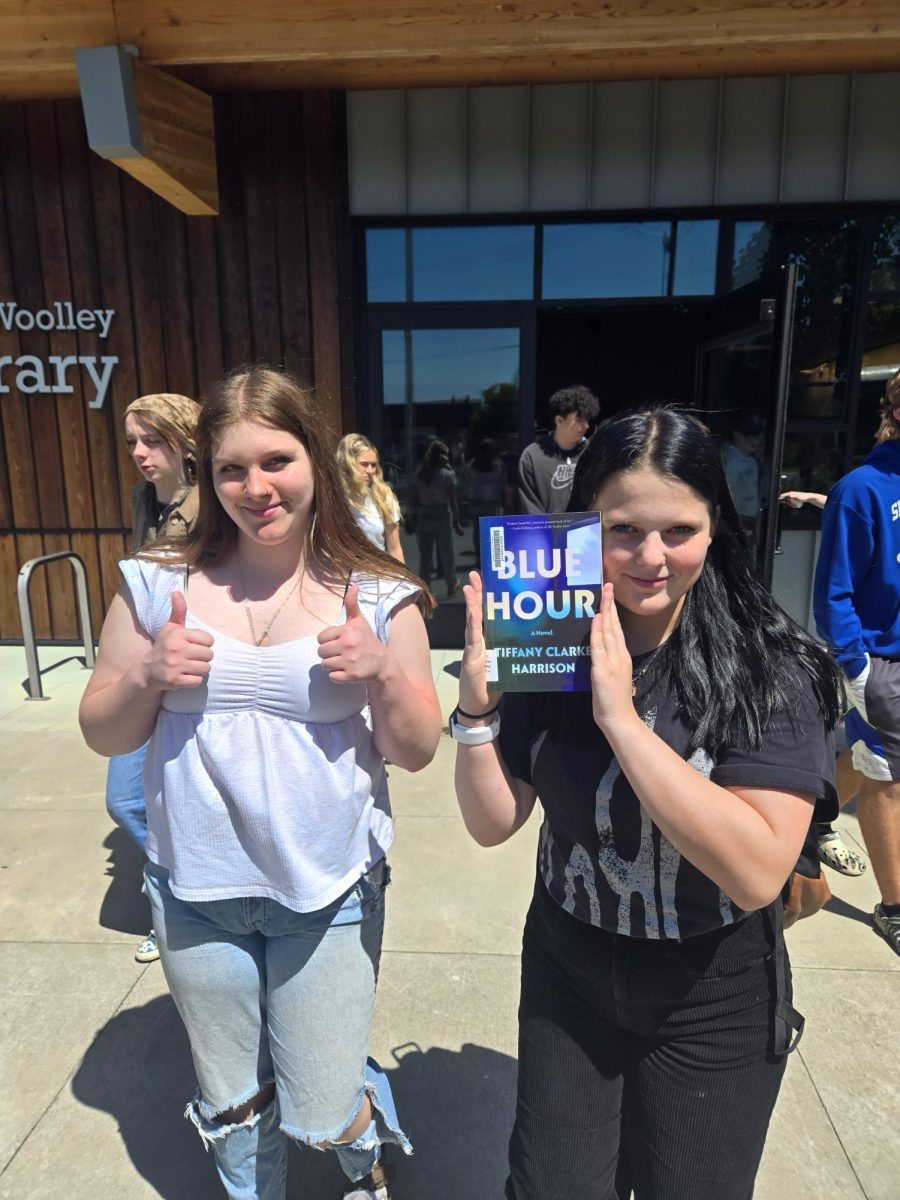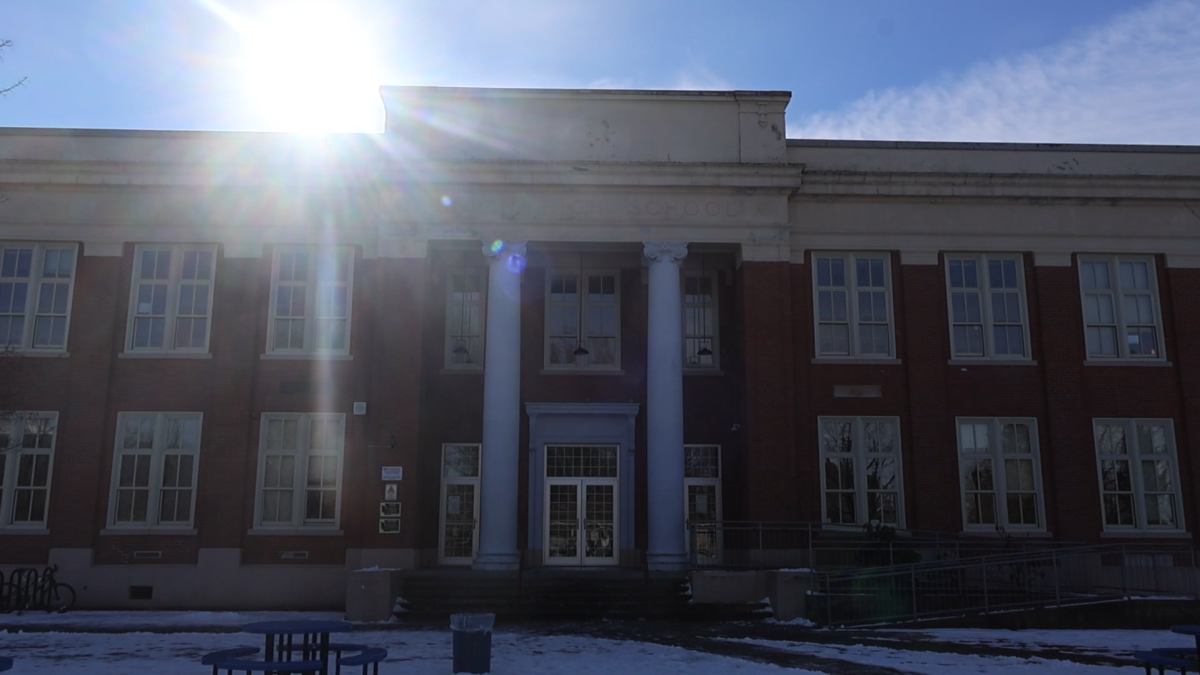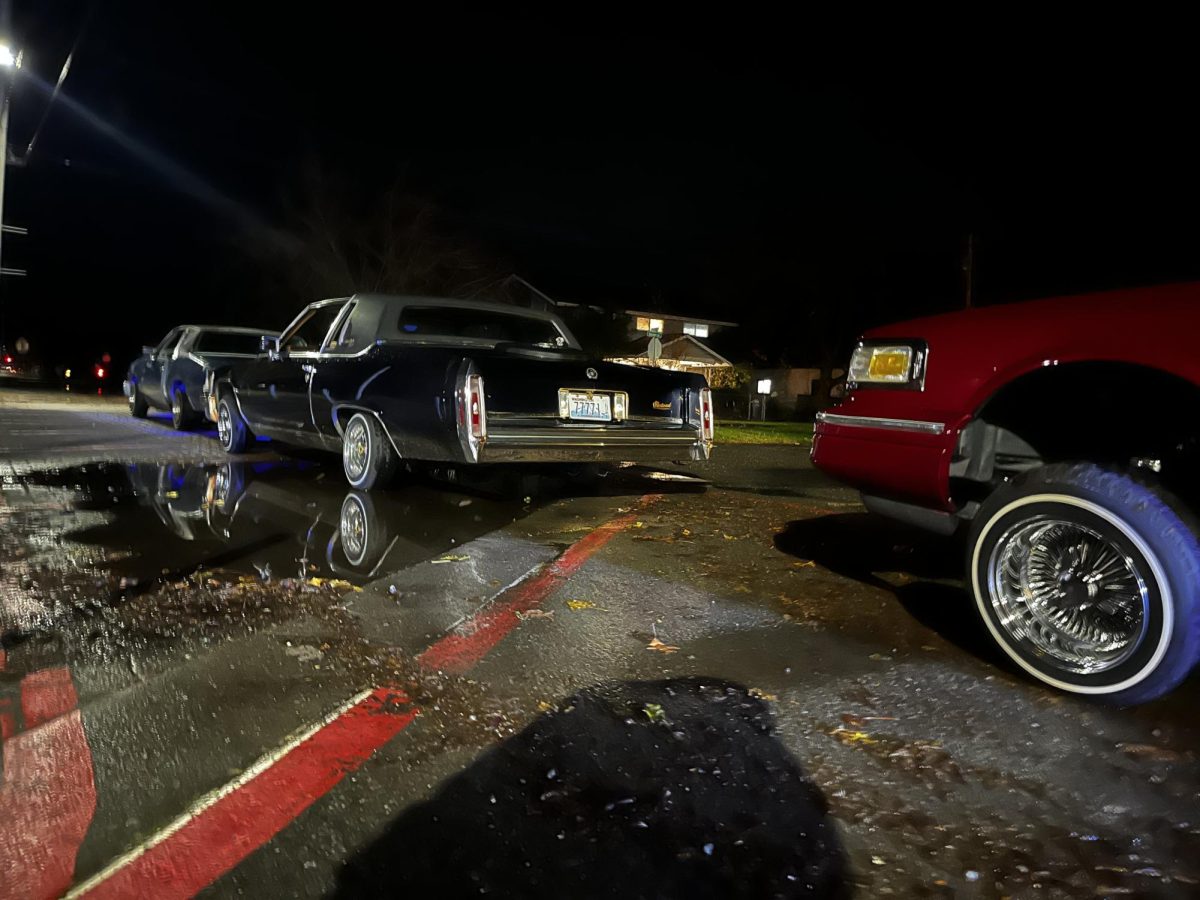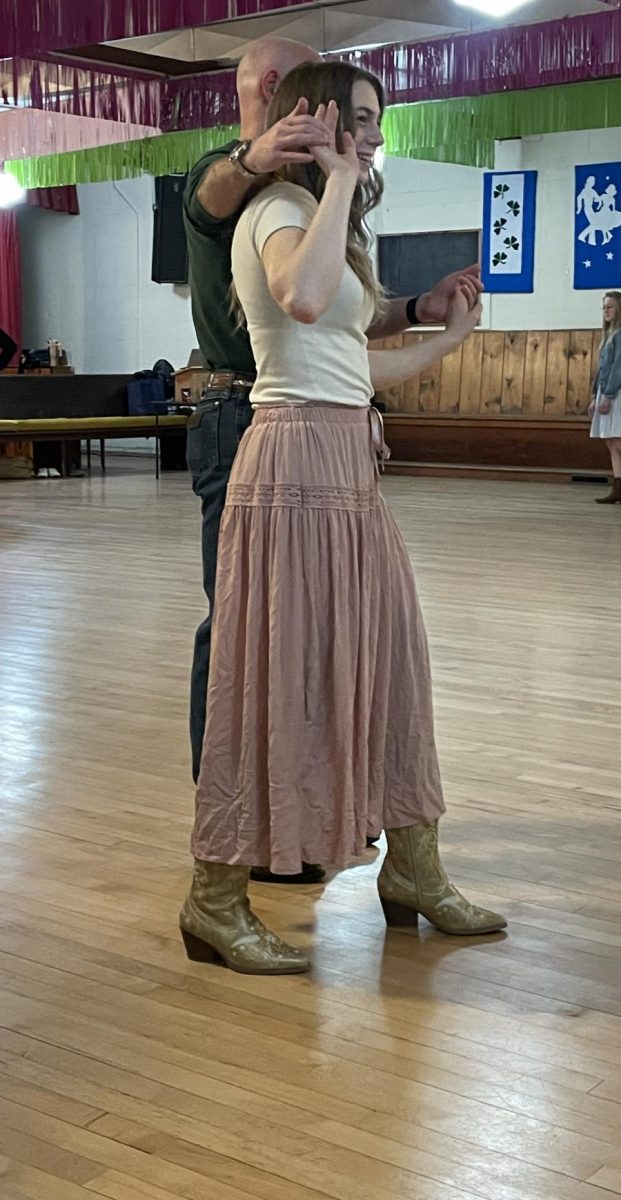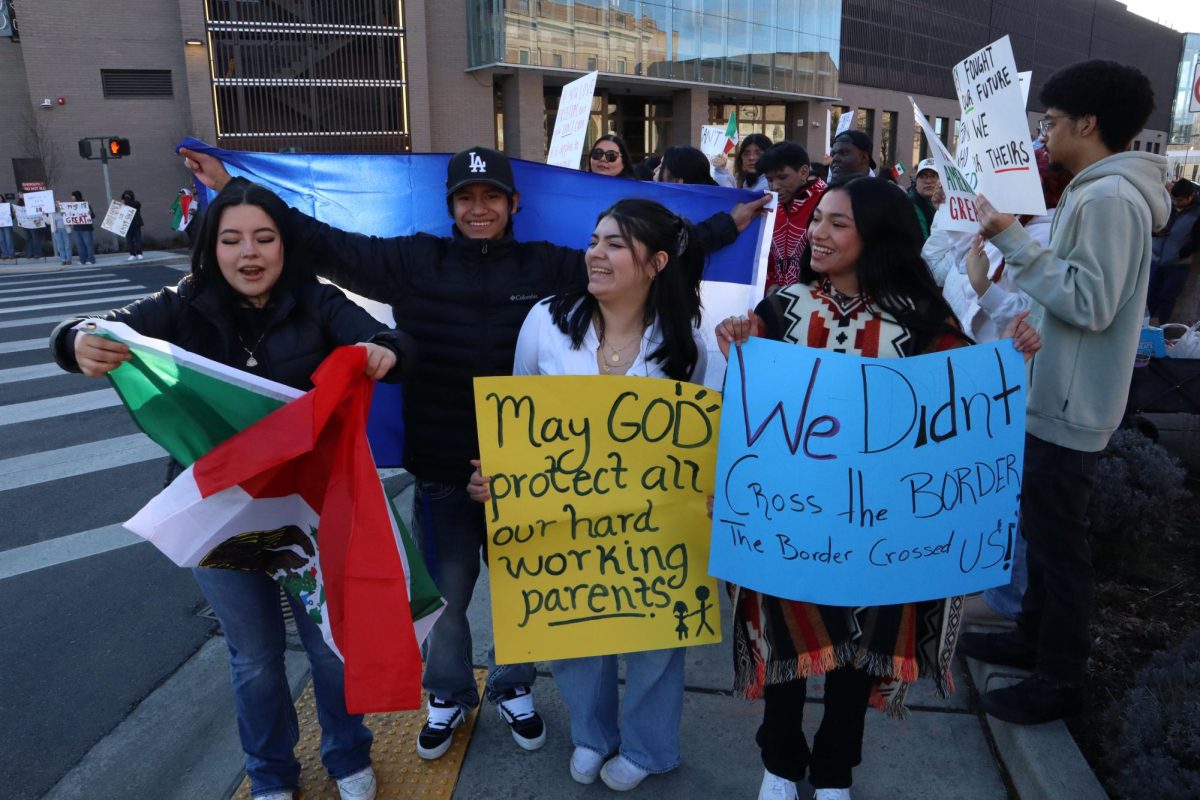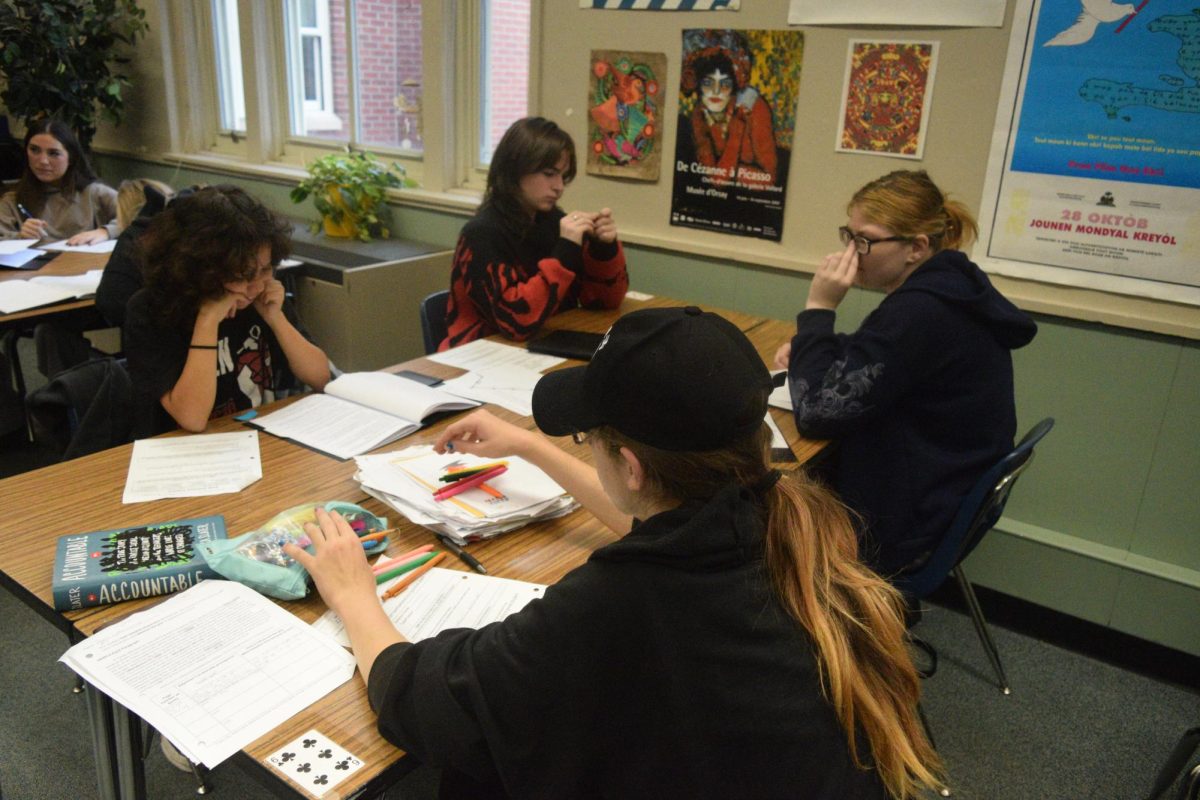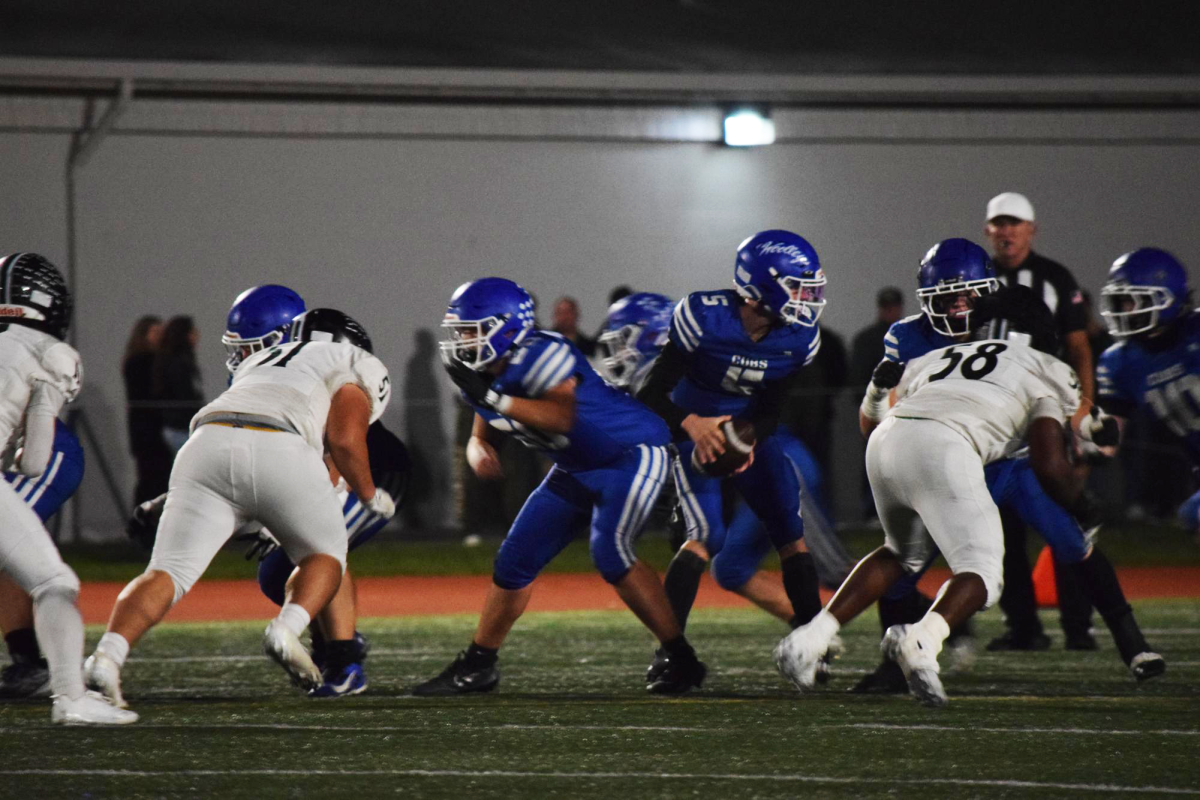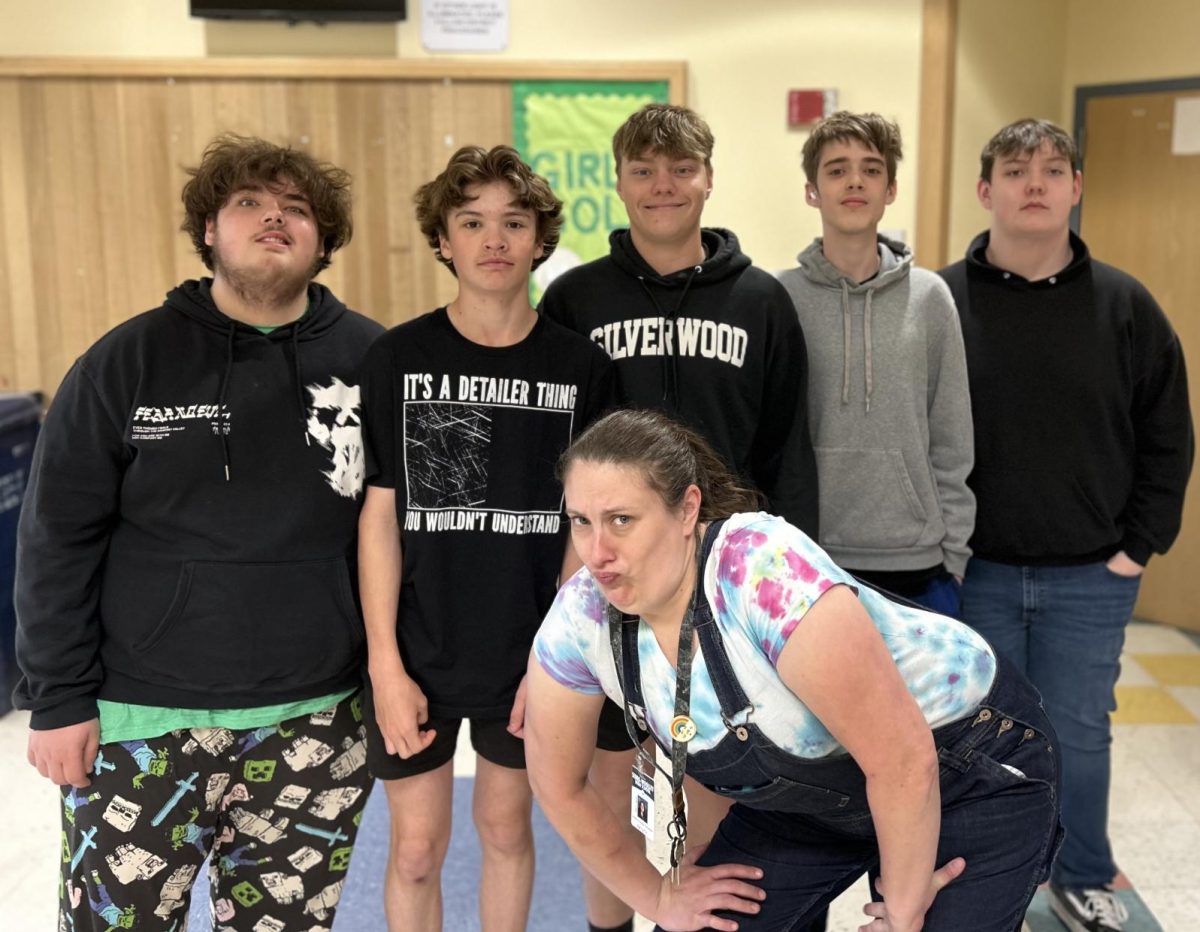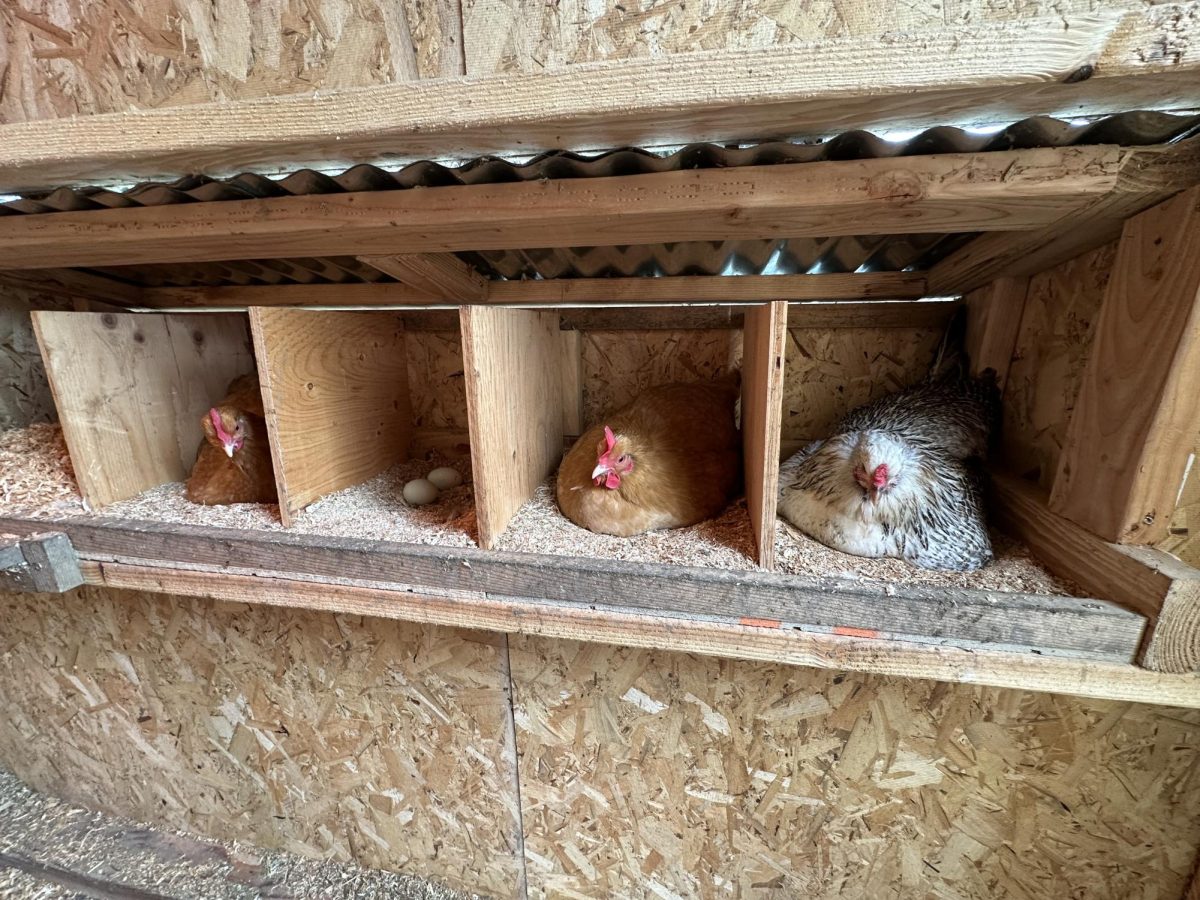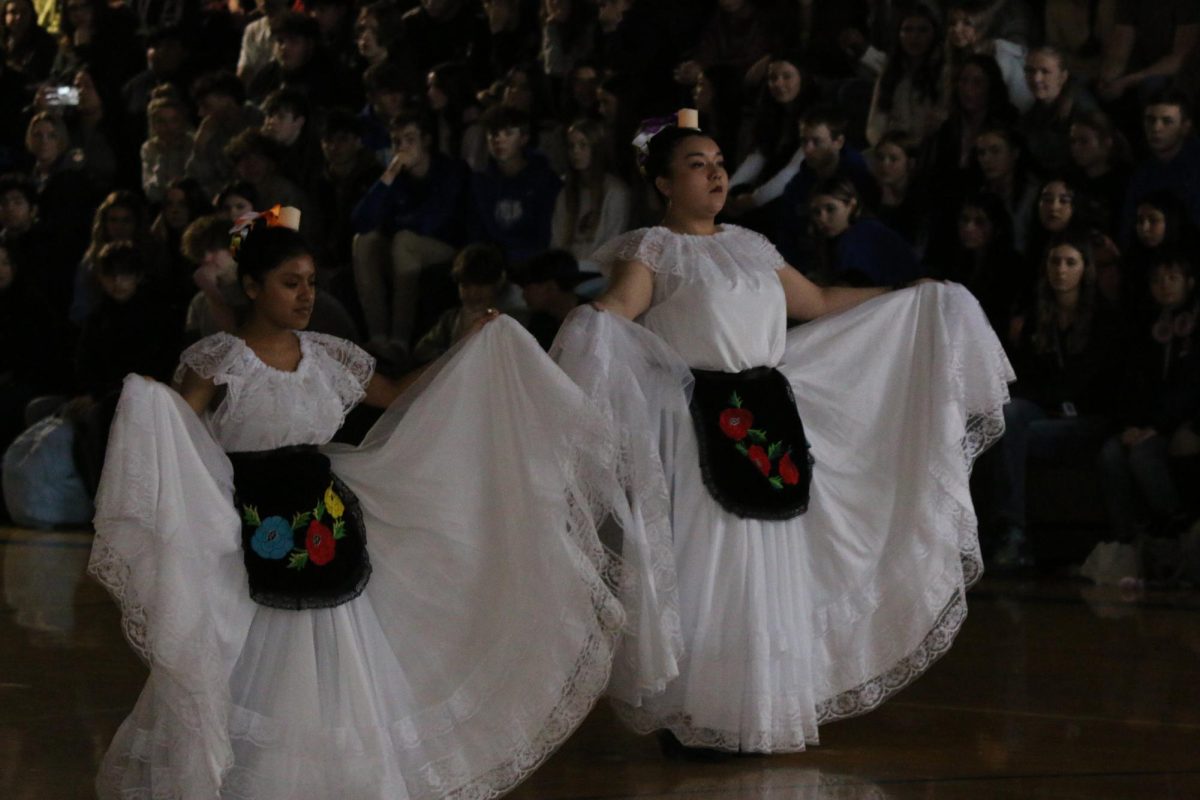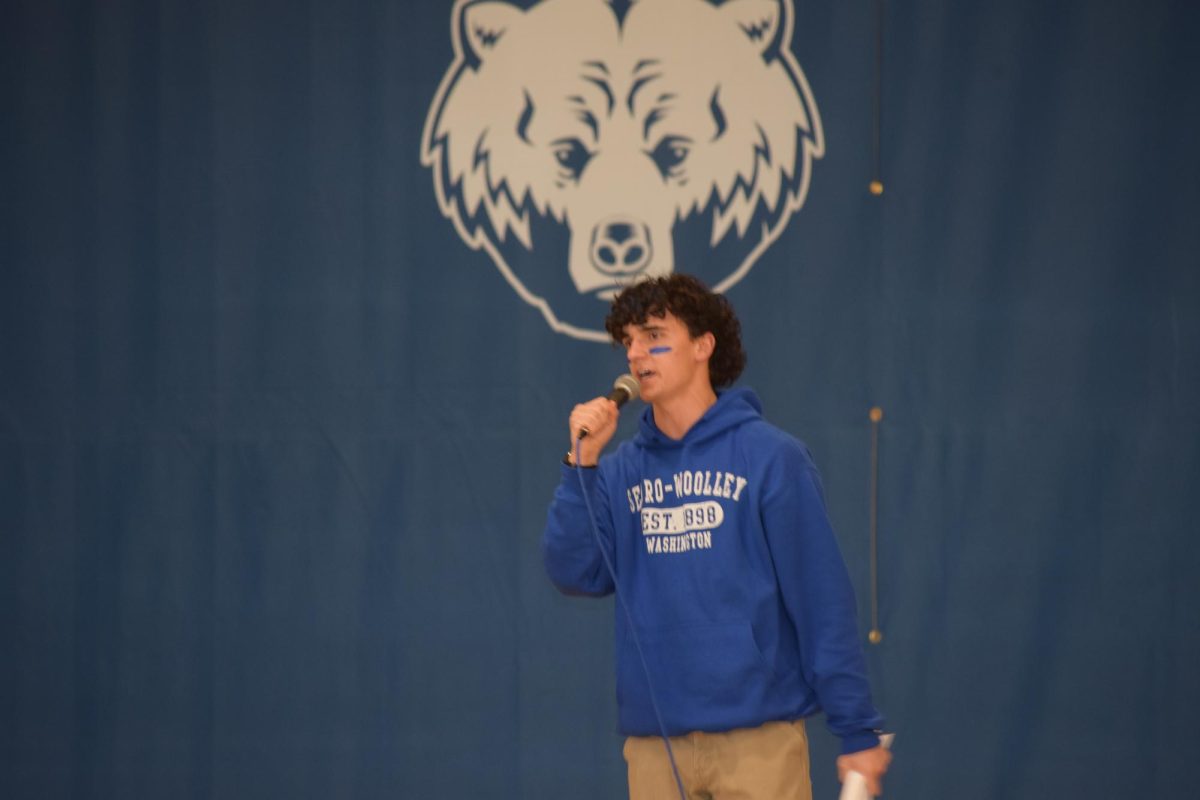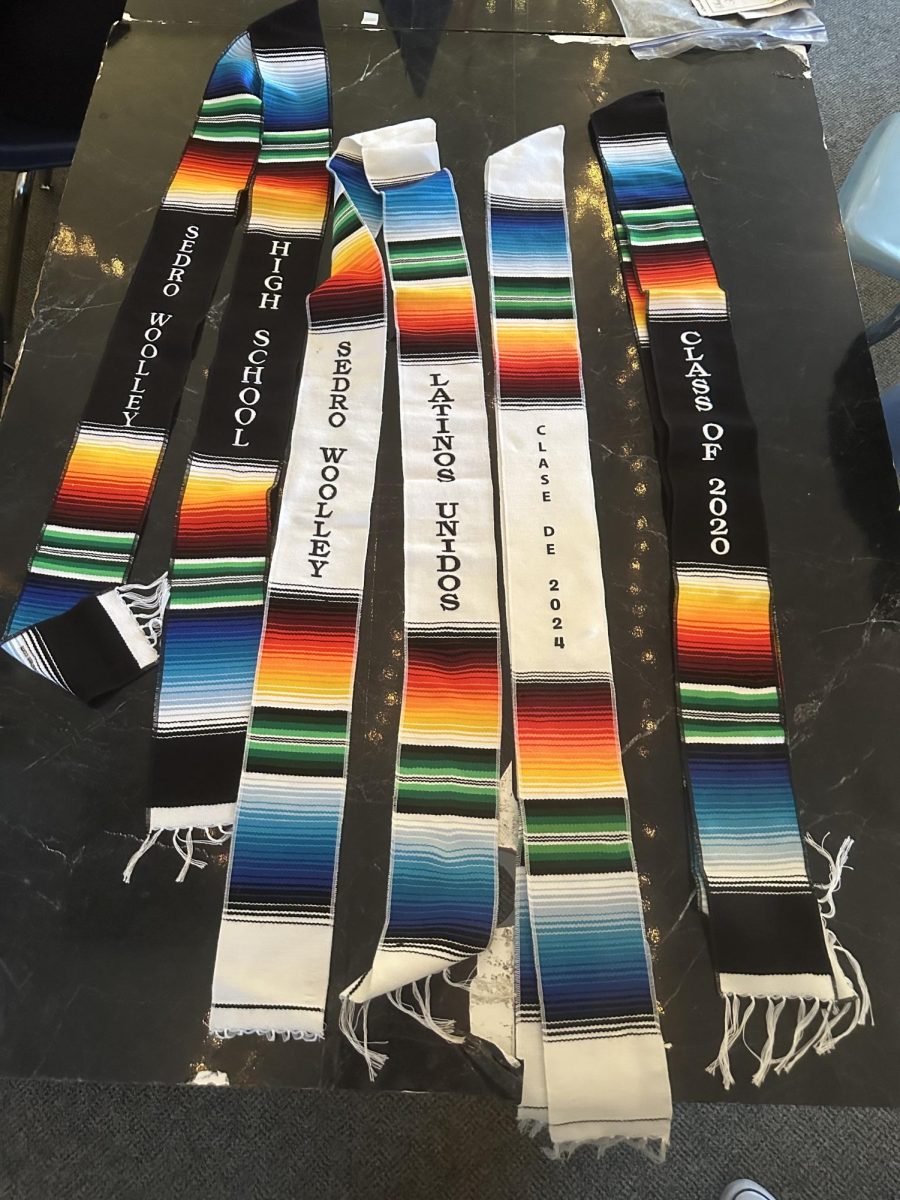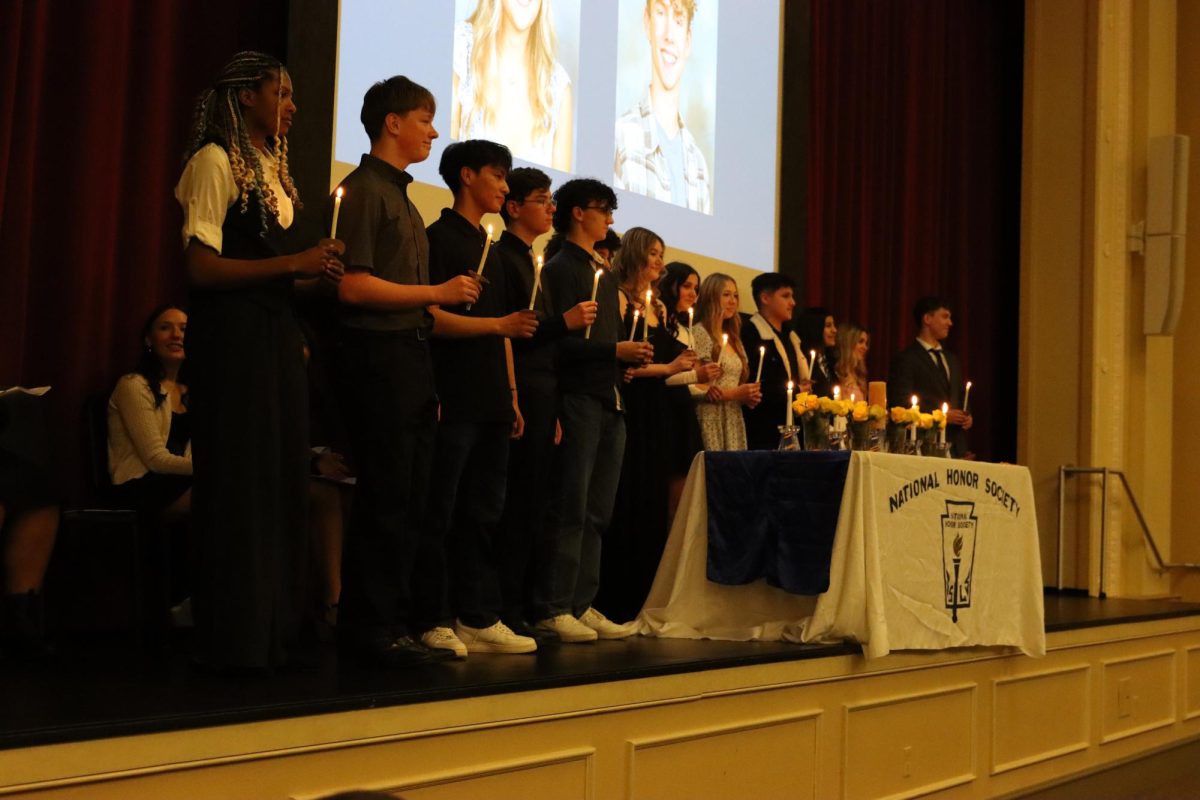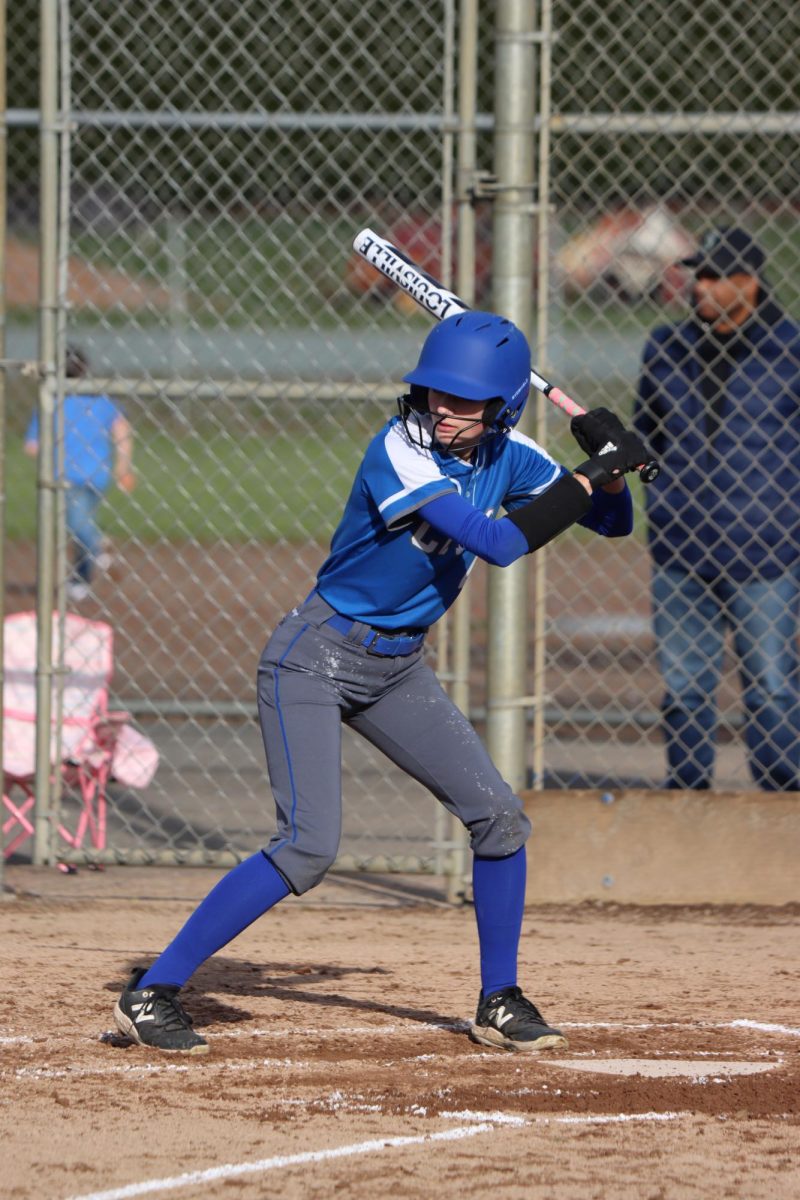Here in Sedro-Woolley we have a lot of places and resources available. This includes school and local libraries. These offer us ways to engage in reading, critical thinking, and more. On June second and third, English classes from SWHS took a walking field trip to the Central Skagit Library. Here, they did fun crafts, got to know some of the resources available, learned about books that might interest them and got to explore the library. This is just one of the ways our libraries aid us and our community.
Teen reading has been a subject brought up in schools for years. The debate of whether or not students are reading is still going strong.
Out of 147 responses of students surveyed at Sedro-Woolley High School, 27.2% of students read rarely, and 27.2% of students read sometimes, 32% of students can have a mostly easy time finding a book which interests them, 25.9% of students can sometimes find a book of interest, 51% of students find in-class reading okay, 18.4% of students don’t like it, 14.3% of students love it, and 12.2% of students struggle with it.
Here in Sedro-Woolley High School, the library is used a lot.
Linsey Kitchens is an English teacher and the certified librarian here at SWHS. According to her, the SWHS Library gets used a lot.
“I think we probably check out over 100 books on most days,” Kitchens said.
Kitchens, the SWHS librarian, notices a lot of students’ relationships with reading. This includes reasons they might not want or like to read.
“A lot of students rail against independent reading,” Kitchens said, “because an adult was telling them what they have to do and when they have to do it.”
Kitchens emphasizes the importance of students liking what they are reading.
“When the right book hits their hands – and it could take, you know, ten months for them to find the right book- but when the right book hits their hands, all of a sudden, that time kind of disappears, and they understand the assignment, which is to find a way to enjoy reading.”
Kitchens stresses that the right book will give you a love for reading.
“If you haven’t found the book that makes the magic, then you haven’t found the right book.”
Kitchens believes that the SWHS library may be able to provide students with deeper reflection of themselves. She references the mindset of books as mirrors.
“I hope the library provides a mirror into themselves,” Kitchens said. “That they can find a story on the shelf that feels like them, that reminds students that they’re not alone, that they’re not abnormal, that nothing is wrong with them, that everything they experience and feel is real and normal and part of life, unfortunately or fortunately.”
Kitchens also believes that the SWHS library provides students with new outlooks. She references the next part of the mirror mindset: books can also be windows.
“I hope students also can find a window here where they can experience another life,” Kitchens said. “Even if they’re stuck in Kitchen’s, second period, awful English class, or even if they’re stuck at home because they’re grounded and all their devices have been taken away and it’s pouring rain, they can be transported to a magical place, somewhere else.”
Kitchens prides herself in her ability to assign students a book they will enjoy.
“I consider myself a used book sales person,” Kitchens said, “like a used car sales person.”
Kitchens takes the students’ likes, dislikes, and interests to help find the perfect book.
“For me, a lot of it is just finding out about the student,” Kitchens said.
Kitchens acknowledges the distractions that students’ face in our modern day society.
“We have such little time,” Kitchens said, “and our attention has been whittled down to such little pieces, so we’re constantly fighting back against that.”
But, she also believes that there are ways that combat the distractions.
“Giving them time,” Kitchens said. “Time and choice are the number one things.”
Kitchens knows that students don’t like to read, or don’t read often, and say they are not readers.
“I think we think that there are readers and not readers,” Kitchens said. “And I would say a lot of students consider themselves not readers.”
Kitchens believes that that is not true.
“But the truth is the moment you sit down and pick up a book and read a sentence or two, or even the dust jacket of a book, you’re a reader, that’s all it takes.”
The Central Skagit Library is Sedro-Woolley’s local public library. It opened at its new location in 2021, and has been checking out books and other tools since.
There are many people who work at the public library. Hillary Huggins is CSL’s teen services specialist.
“We have lots of great resources,” Huggins said.
Huggins provides examples of resources that aren’t physical objects.
“We also offer a lot of programs for teens so that can be our regular clubs that we have, like our Dungeons and Dragons club, our anime club, our monthly craft club.”
Huggins says that CSL offers potential experiences that will teach teens how to utilize and learn certain skills.
“We also have volunteer opportunities, so teens can come, get work experience, earn volunteer hours, whether it’s for something they’re interested in, or for a program like Varsity in Volunteerism, or organizations like scouts and things like that. We’re always happy to have volunteers.”
She explains that books are not the only physical resource that CSL provides.
“We also have cool resources that aren’t books or movies or magazines,” Huggins said, “like telescopes.”
Huggins highlights the importance of the library being free.
“At the library, it’s one of the few places that you can go in this world where you are entirely welcome and you don’t have to spend money.”
She also points out that CSL is therefore completely for the public.
“The great thing about libraries is we exist for people, and we exist for people to use.”
Huggins says she thinks teens should be reading. One reason is enjoyment.
“One: because reading is fun,” Huggins said. “And I know, I know there are some teens out there who will probably say reading is not fun, and I would argue that that’s because they haven’t found the right book yet.”
Reading is a way to gain new perspectives on things, she believes that the right book can do wonders.
“I think one of the big roadblocks is finding a book that you enjoy,” Huggins said.
These reasons can also include transportation struggles.
“And then other barriers can be some people like to read,” Huggins said, “but they don’t have a way to get to the library.”
And, they can include struggles with being able to read a book.
“Other challenges that we– that someone might encounter with difficulty reading is something that makes the actual act of reading difficult,” Huggins said, “whether it’s a vision impairment or something like dyslexia that makes it harder to process the reading, or even something like ADHD that makes it difficult to sit and focus while you’re trying to read”
But, Huggins offers many solutions to these problems. One problem that has a solution is not enjoying a book.
“Come ask a librarian,” Huggins said. “We are always happy to talk about books, and we will take the time to help you find the right book that’s a good fit for you. “
“And so, yeah, there’s a book out there for everyone,” Huggins said. “We just have to find it.”
“We also have digital resources that people can use from home,” Huggins said. “So that’s things like e-books that you can read on your phone or computer audio books that you can listen to, databases and things like that, that you can access, and those are ones that you can use from anywhere that you have an internet connection.”
The online resources can be useful because having an internet connection is only required for the process of downloading.
“The other thing too is you just need your internet access to download them,” Huggins said. “So if you are able to use, say, the internet at school to download an audiobook, once it’s downloaded to your device, you can still read it at home, even if you don’t have internet.”
CSL also has both physical and online resources that can help make reading easier.
“Also, all of our e book resources have the ability to adjust the font sizes,” Huggins said, “so you can make the text bigger or smaller, if it helps with eye strain. You can also change, like, the background color. Some of them even have dyslexic friendly fonts, which is really cool.”
Huggins said that audiobooks are a great tool to use when you are on the go.
“And so that’s nice if you are a more active person and want to read a book while going for a walk or working on a project.”
Huggins has advice for people who want to start to get into reading.
“Start with a book that is something that you’re interested in,” Huggins said.
The CSL staff can help find you a book if you’re struggling.
“And then a great thing too is, again, you can talk to us at the library,” Huggins said, “and we can help find books that are a good fit for people in terms of reading level as well.”
Huggins said that graphic novels would be an easy entryway into reading.
“So those are great for people who may be reluctant to pick up a book or want something that is a really fun, engaging story, but less of a challenge in terms of the reading part of it, or also having all of those visuals,” Huggins said.
Huggins says that any high school student can use the library for no cost.
“One thing that I would love all Sedro-Woolley High School students to know is every single high school student has a free library card account already set up for them,” Huggins said.
Earlier this year, The Trump Administration cut funding to the Institute of Museum and Library Services. This has left many wondering how their local libraries will be affected by these changes.
“So the short answer is yes,” Huggins said, “we are impacted.”
People have also been worried that the funding cuts may cause their local libraries to close down.
“The other answer that people are wanting to know most often is, are we going to close because of these funding cuts,” Huggins said. “The answer is definitely no.”
Huggins said that the biggest impact that will be seen is to do with CSL’s online resources.
“The main impacts that we’ll see are related to access to particular resources,” Huggins said, “like our libraries, databases and things like professional development opportunities, and we also have some digital resources that let people borrow ebooks and audiobooks. We’re probably going to notice that the wait time for those is longer, but the doors will stay open.”
Huggins said the biggest way the public can help the library is to use the library.
“The more that it gets used, the more that we’re able to prove that this is a valuable thing,” Huggins said. “This is something that our community likes and needs.”
–*–

